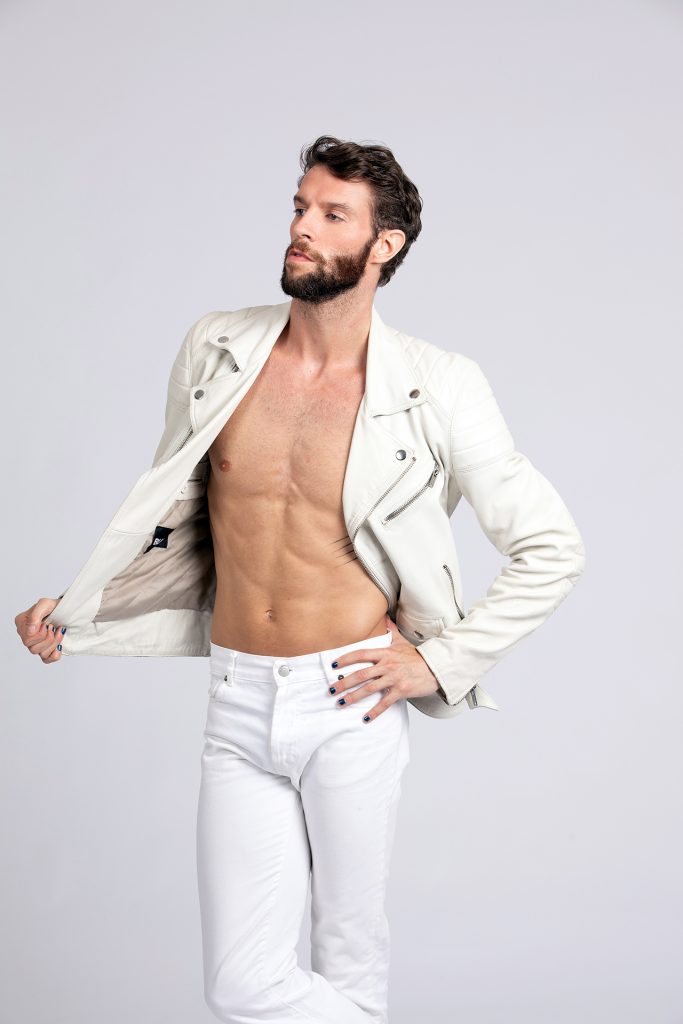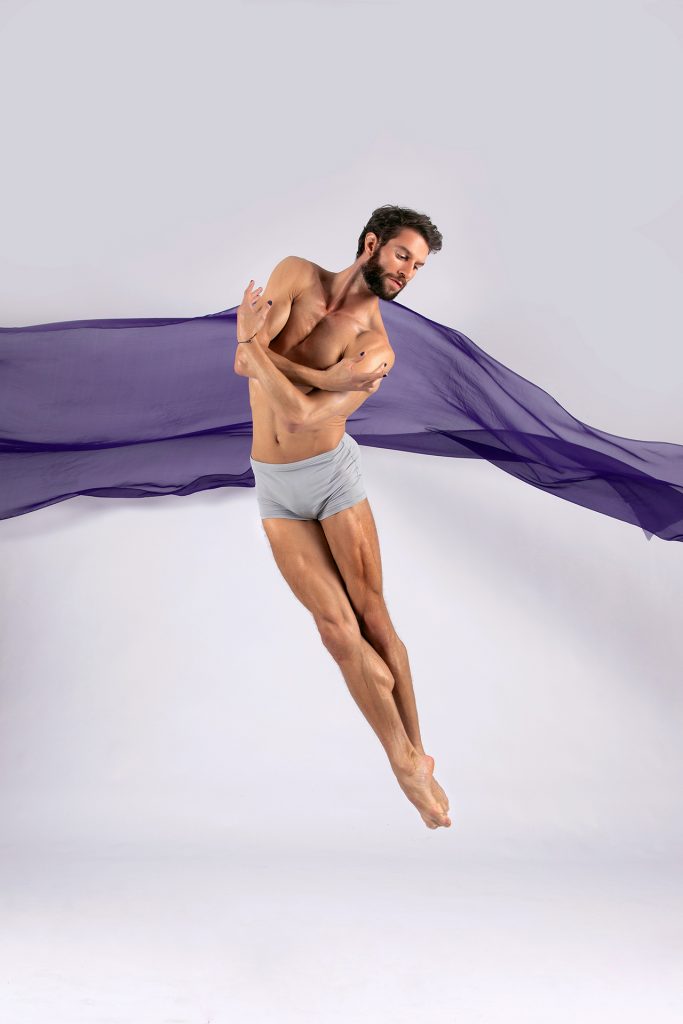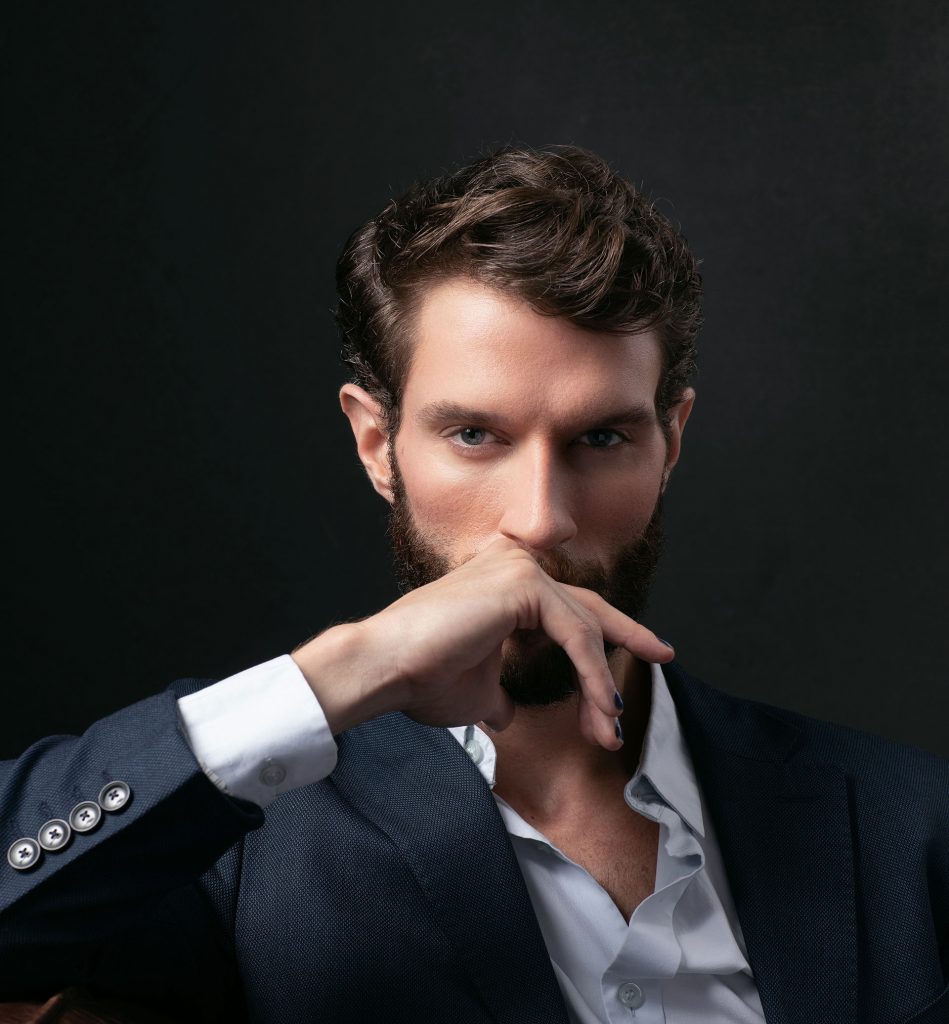This Connecticut native and dancer has all the right moves
By Frank Rizzo
In the dance-theater piece “The Tenant,” which had its premiere last fall at The Joyce Theater in New York, James Whiteside played a stressed urban dweller who transforms himself into the persona of the woman who lived and died in the apartment before him. It was just one of many mesmerizing identity shifts that the handsome 34-year-old dancer with the striking jaw, glistening body, and chiseled legs has made since he was a free- spirited boy growing up independent and gay in Fairfield.
“I understand the idea of having many people living inside you,” he says. “Something I’ve thought about for ages is, ‘Who am I choosing to be?’ ”In “The Tenant,” based on the 1976 Roman Polanski film and 1964 Roland Topor psycho- sexual novel, Whiteside was the epitome of contemporary angst, performing wildly expressive modern dance moves – including full-frontal nudity – that was far removed from his roles as principal dancer at American Ballet Theatre (ABT). Since 2012, Whiteside has dazzled audiences and critics at ABT with his graceful lines, stunning technique and breathtaking partnering that defines what it is to be a leading man in classical ballet – while at the same time re-defining it as an out-and-proud star.
But the formal world of performing at ABT is just one of the many Whiteside lives in, and his roles in each artistic genre vary wildly. They include being a drag performer, electro- pop composer, model, choreographer, podcaster, and sneaker and ballet shoe designer (his shoes are size 9). Last fall, in the midst of rehearsals and performances for “The Tenant,” he also completed a course at the Harvard Business School while choreographing a new piece at an ABT lab. He also has an outline for a book he wants to write and if an acting gig comes along, he wouldn’t necessarily say no.

His fan base is huge – he has 176,000 Instagram followers. There are those who see him as his sassy rap musical persona of JbDubs, whose videos have gone viral with such high-energy dance songs such as “I Hate My Job” (which received 3.5 million views), “Wallflower” and “The Fanny Bounce.” Then there are fans of Uhu Betch, the sassy dragster he portrays and one of the members of a group of downtown club-hopping divas. And then there those who follow his dance star, too.
Whiteside grew up a Connecticut kid with a strong sense of freedom, rebellion, and fun. “I was like most little boys, honestly: energetic, wild and probably very irritating,” he says. “I was also sort of weird. And my sense of humor has always been a little off.” In his boyhood bedroom were posters of NSYNC and Janet Jackson, with music playing by Britney Spears. There was a big tape deck where he would make mix tapes off the radio, a PlayStation (he’s still a big gamer), whiffs of incense and shelves filled with global tchotchkes. “My bedroom had a sort of world flair to it,” he says.
His parents divorced when he was two, and since he was a boy, his mother tried to harness her wild child’s energy into some productive outlet. He tried sports. “Loathed all of them.” Then he saw an ad in the phone book that had a picture of a man suspending a woman over his head with one hand. He thought it looked cool and decided to check it out. The ad was for the D’Valda & Sirico Dance and Music Center in Fairfield, and it was there Whiteside finally found his passion as he was coming to terms with being gay. “I didn’t discover or accept that I was gay until I was 16 years old – but I had inklings. Most of my friends knew it before I did. It was like, ‘OK, who are you kidding?’ Denial is pretty easy to maintain so I waited until I was 16 before I finally gave in,” he recalls.
As an out teenager in the early 2000s, he was the object of “mean kids” at school. “But I was very resilient and had wonderful friends, and dancing made me confident and happy. I think being an outsider from a young age conditions you to be more bold in your choices and you feel less obligated to conform,” he says. “I believe that gives queer people an edge. And I found that independent thought is really important to success; I believe I wouldn’t have the same drive in this way otherwise.”
Dance Moves

Whiteside’s extraordinary dance talents became evident early on and he received a scholarship for ABT’s summer program when he was in his early teens. “But I wasn’t obsessed with [ballet],” he said. At least, not yet. He received a letter at the end of his second summer, ending his scholarship. The setback only made his resolve stronger, determined to be better at the classical form.
At 15, he got a scholarship to the Virginia School of the Arts. “There, I learned I had to focus,” he says. “When I was a teenager in Connecticut, I was slightly wayward. I didn’t try at all in school. I smoked a lot of pot and fooled around with people a lot. The only thing I cared about was dancing.” At 17, he was offered a scholarship to a summer course at Boston Ballet. By the end of the term, he was asked to join the company, graduating to soloist and, finally, principal dancer. But his colorful flair wasn’t always welcome and was sometimes mistaken for not taking the work seriously. Nothing could have been further from the truth for the serious, focused and ultra-disciplined artist. But outside of ballet, life was a blast. He roomed with pals in the South End and they partied heartily on their off time. One night, they formed a drag quartet, calling themselves The Dairy Queens, naming themselves after dairy products. He was inspired by his beloved childhood Yoo-hoo drink and his now-partner of 10 years, Dan Donigan, became Milk (and would later be a contestant on “RuPaul’s Drag Race.”) Rocks, bottles and homophobic taunts sometimes greeted the group. “People there were incredibly aggressive. They were not impressed with us,” he remembers. Whiteside also started making music on his computer. “I was always fascinated with all kinds of music but my tastes are definitely pop because I sure do like dancing.”
In 2012, he joined ABT as soloist. The next year, he was a principal dancer. “I was without a doubt the gayest person in this butch atmosphere, but this time I felt incredibly unapologetic. I wasn’t interested in pretending. I just was who I am. When I joined, I was a soloist and I was getting a lot of principal parts, so not only was my personality somewhat shocking but I imagine it was hard for people who were waiting for these principal roles to have someone else come in and sort of usurp things,” he says. “But I certainly didn’t have the time to focus on that because I was so busy learning new repertoire and it was not a harrowing situation. I felt supported [at ABT] because I worked very hard and when you see someone working really hard, it’s hard to disrespect them. But it took about four years before I felt people got used to my existence there. If you persevere, people just have to give in at some point. It’s like a game of chicken and I believe I won.” Hard Work Though Whiteside’s Instagram and Twitter pics and video clips are often playful, they are also plie-ful, showing both the agony and ecstasy of being a dancer.
“It’s important to get real every once in a while, and to show that this is really fucking hard and that it takes a lot of work and extreme discipline. That’s worth noting and appreciating,” he says. Besides the hours of rehearsing and performing, Whiteside also works out with a personal trainer. “Before that, I just went to the gym on my own, doing weight and strength exercises,” says the six-foot, 160-pound dancer with the distinctive claw-scrape tattoo on his left torso. “Essentially it’s so I can partner the women in a productive and easy way. I get my cardio in my daily dance rehearsal. As far as diet, I eat whatever I want because I’m blessed in the gene department.”
Whiteside’s hunger to do new and challenging projects comes from a continuing personal exploratory search. “It’s not just for superficial reasons but for soul reasons that I do a project like ‘The Tenant.’ I needed this.” That ability to stretch as an artist – and as a person – is what he urges audiences to do, too. “I understand preferring to just go to or do things that you like, but I want art to be less about personal preference and more about a willingness to witness something that they never experienced before,” he says. With all his projects, it’s become more difficult to keep up with all of his alter egos. “Oh my god, I wish I had more time to do more music and drag, but I’m doing so much dance right now it’s difficult to maintain all the personas in the way that I did before.
There’s a lot of world travels coming up in 2019 and performances all over the place,” he says. “I don’t do vacations but I did Fire Island last summer and I try to do P-Town for a week every year.”
Does he feel he is a gay role model and helping to give young people a voice? “It’s hard to say,” he says. “I’m just a gay dude. But I’m very happy if I can provide some support. I’ve had some heartwarming experiences of young people telling me that they have been more comfortable with being open about who they are because of me. And that
inspires me to be better still.”








More Stories
The Last Word: Holiday Greetings, Dear Friends
Poll Dancing: Just How LGBTQ+ Friendly is Connecticut?
Make It Here, Just As You Are